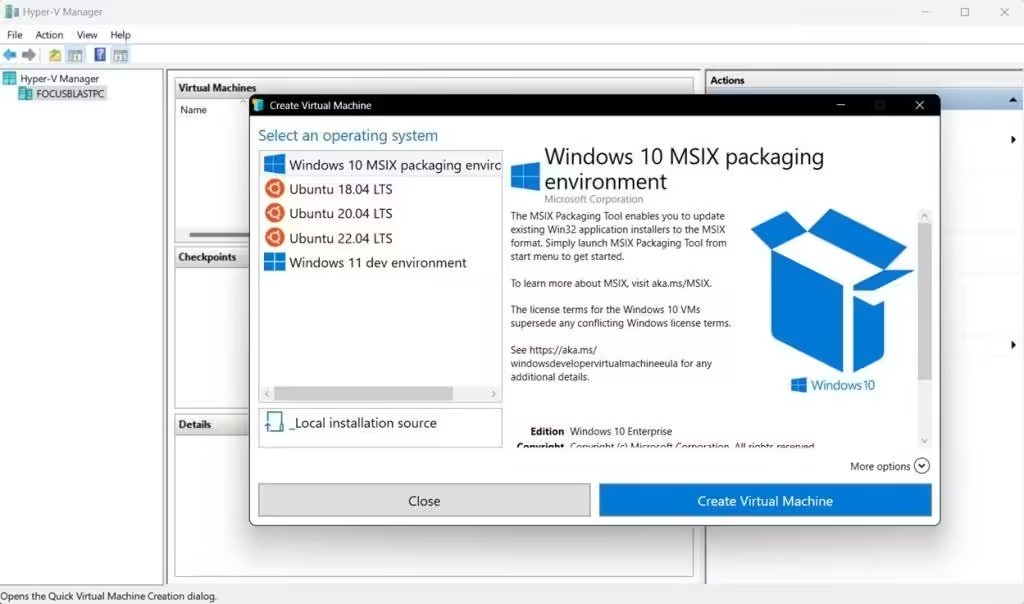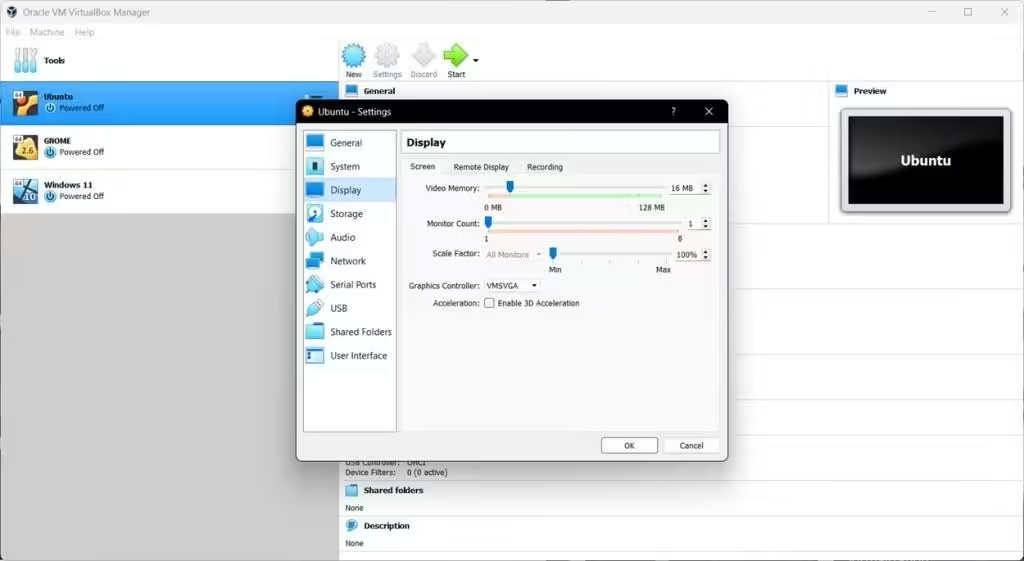
As online businesses continue to grow, cloud computing has experienced significant advancement, further propelled by the rapid development of AI. A crucial aspect of cloud computing is virtualization, which involves creating and managing multiple virtual machines. Platforms like VMware are well-known in this area. However, if you’re looking for alternatives to VMware, here are some options.
Microsoft Hyper-V

If you’re already using a Windows server or the latest version of Windows, Microsoft Hyper-V is a solid alternative to VMware. It supports both Windows and Ubuntu Linux and is easy to manage via the Hyper-V manager or Windows PowerShell.

Red Hat Virtualization

Red Hat is a well-known name in enterprise-grade virtualization and cloud computing. Red Hat Virtualization (RHV) uses a Kernel-based Virtual Machine (KVM) with Linux, known for its speed and resource efficiency, making it highly scalable and secure.

VirtualBox

Oracle’s VirtualBox is popular for both enterprise and personal VM solutions. It’s open-source and supports a wide range of operating systems, including macOS, Linux, Windows, BSD, and Solaris. VirtualBox is scalable, supports snapshotting, and works well with external devices.

Nutanix Cloud

Nutanix offers a robust alternative to VMware with its hybrid cloud model, providing an agile infrastructure for hosting VMs and apps. It uses Hyper-converged Infrastructure (HCI) for enhanced power and virtualization experience.

Parallels Desktop

Parallels Desktop is a great choice for running VMs on various platforms, particularly for individual users. It is user-friendly and supports cross-platform integration, making it easy to run multiple operating systems seamlessly.

Parallels Desktop is designed with individual users in mind, making it exceptionally user-friendly. Its primary advantage is the ability to run multiple virtual machines (VMs) across various operating systems, such as running Windows on ChromeOS seamlessly. However, like most premium software, it comes at a cost. If you need a reliable VM solution for running different operating systems on macOS, Windows, or ChromeOS, Parallels Desktop is an excellent choice and serves as a solid alternative to VMware.
SUSE Linux Enterprise Server

SUSE Linux Enterprise Server (SLES) is a viable VMware alternative for enterprise users. SUSE offers a comprehensive suite of management systems, including container management and public cloud services across various industries. SLES is open-source and compatible with major cloud providers like AWS, Azure, and Google Cloud.

Factors to Consider When Choosing a VMware Alternative
When deciding on a VMware alternative, consider the following:
- KVMs offer faster performance but require a learning curve and can yield better long-term results compared to Hypervisors.
- Open-source alternatives provide faster patch updates, ensuring the security of virtual machines and hosts.
- Scalability is crucial; choose a solution that offers flexibility and the ability to meet changing needs.
What are your thoughts on these VMware alternatives? Which one would you choose? Let us know in the comments below.

0 Comments